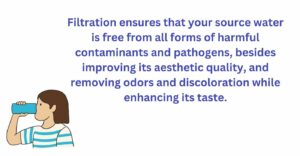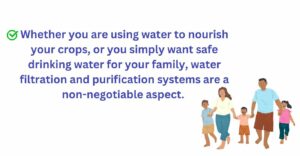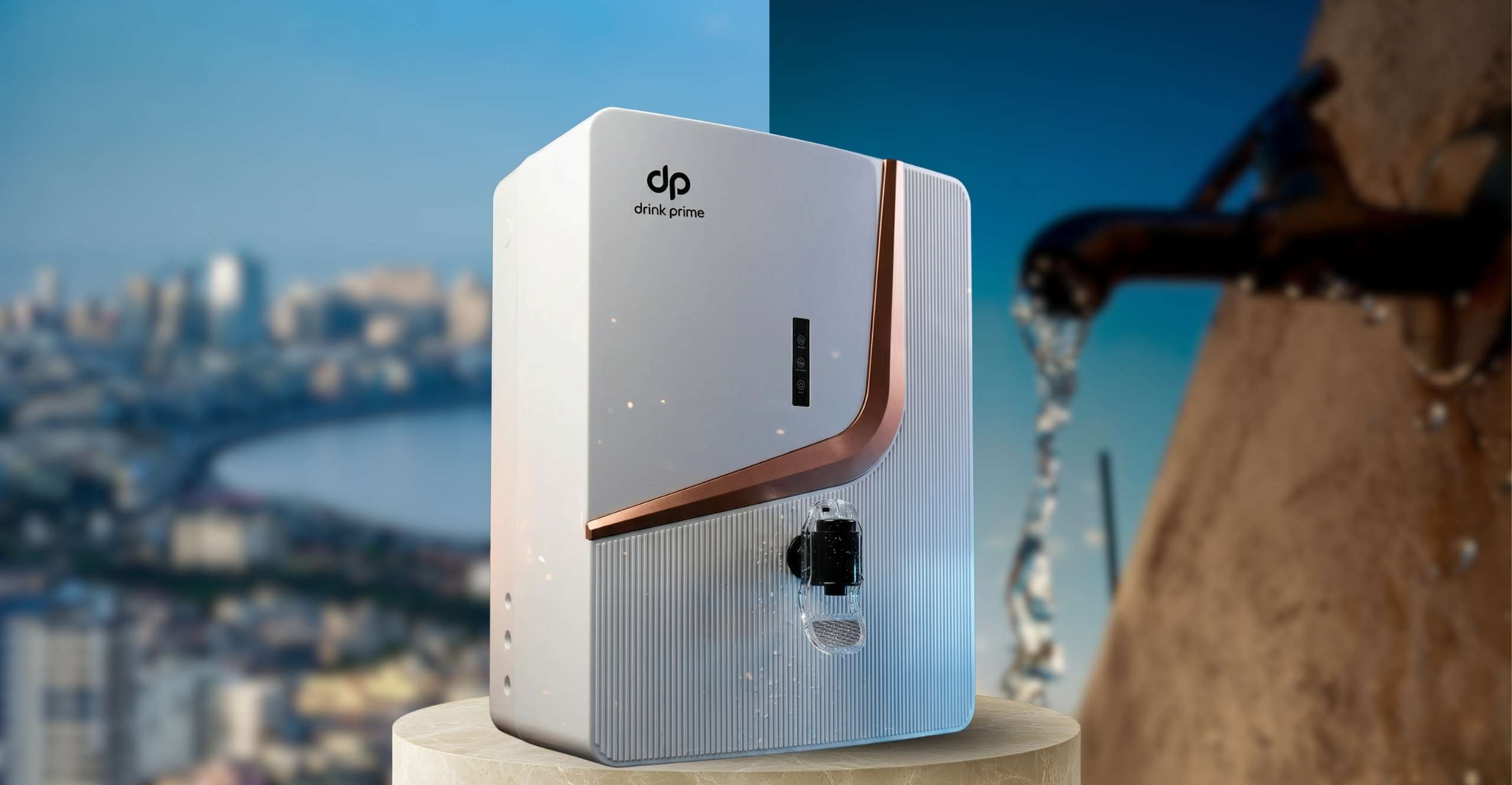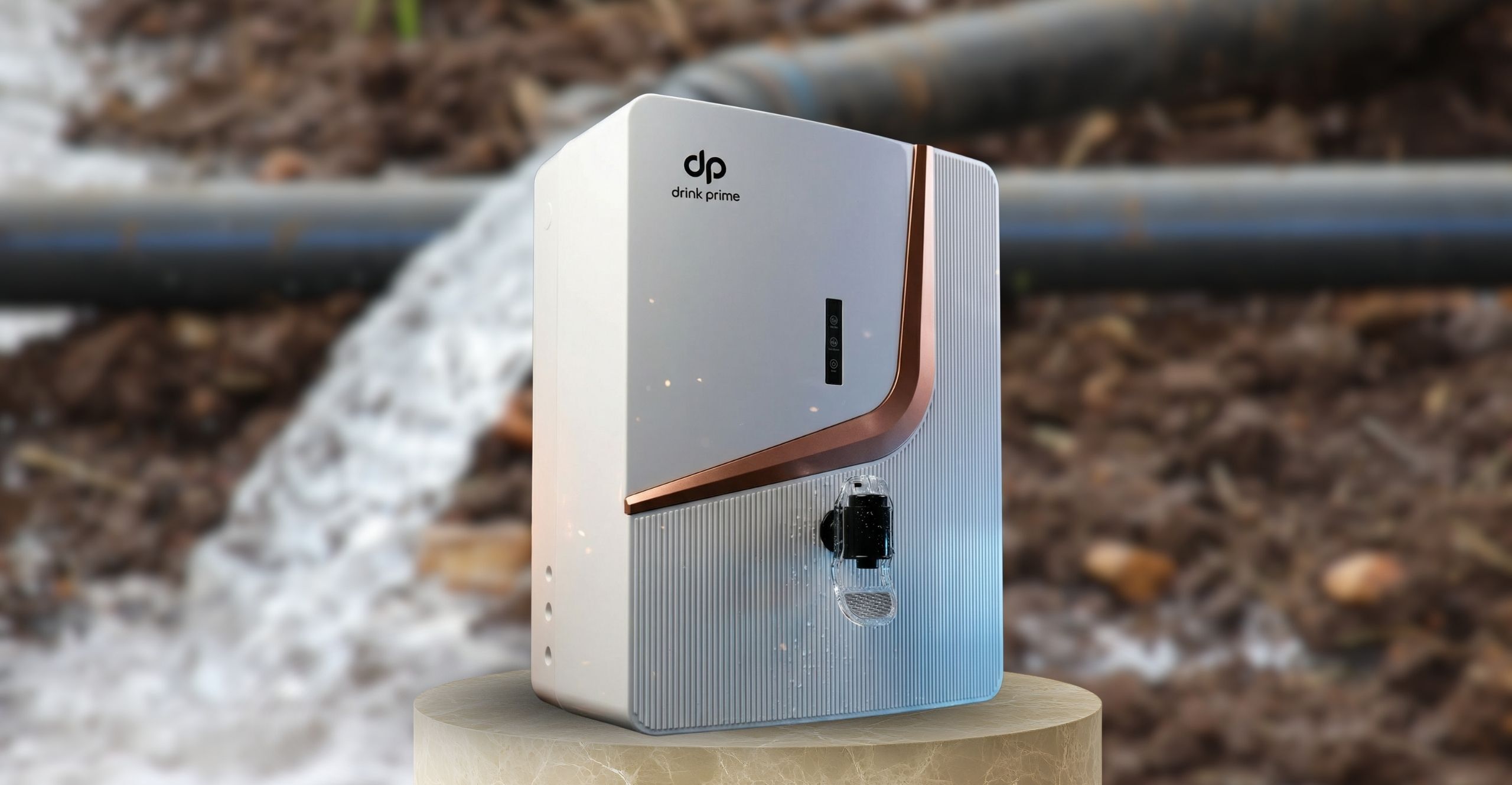Clean and safe water is essential for all forms of life to survive on this planet, be it animals, plants, or human beings. It is this universal need that has spurned the water filtration industry into a thriving and indispensable part of life. From growing your food and powering industries to the glass of water that you drink, each source of water is likely to have undergone some form of filtration.
The extensive use of chemicals and the widespread pollution of water bodies make it non-negotiable that the source water be filtered before it can be used for anything further. In this blog, we delve into why filtration and purification are necessary for us and how water purification works. Let’s dive right in.
Get 7 Days Risk Free Trial
Why is filtration necessary?
You may remember from your school science textbook, that water is often referred to as a universal solvent. What this means is that water can dissolve a great number of substances in it. This is what makes water so good at washing and cleaning dirt away, but this also causes contaminants to combine with water, thus making it dangerous when exposed to plants, animals, or humans. So how can water filters and purifiers help?
Removes contaminants
Water filters remove contaminants and sediments from your source water so that the resultant water is cleaner, better tasting, and odorless. In most cases, water filtration works by using some kind of carbon media to attract the contaminants and allow contaminant-free water to flow through your faucets, shower, or wherever these filters are installed. You can then use this water for cooking, bathing, watering plants, etc.
Removes heavy metals
Water purification also removes impurities from water, but it goes a step further and removes contaminants that a filter cannot purify, like pathogens and traces of metals. Water purified this way is the safest water for your consumption.
Benefits for the soil

The benefits of water filtration are not limited to your home. Filtering water helps it from contaminating other things it encounters. For e.g., farmers use it to prevent chemicals or bacteria from altering the PH level of the soil. Filtered water will ensure that unexpected contaminants will not alter the soil composition, thus translating into a robust crop.
Enhances smell and taste
Filtration ensures that your source water is free from all forms of harmful contaminants and pathogens, besides improving its aesthetic quality, and removing odors and discoloration while enhancing its taste. It also helps you increase the lifespan of certain appliances as well as prevent corrosion of your pipes and prevent hard water stains.
Used for industrial purposes
Filtered water is also used for industrial purposes and by cargo ships to filter their ballast water at different ports. Not doing so could expose the water to bacteria or animals from a different area, which might alter its natural biodiversity drastically.
Can be used for a variety of purposes
Due to the indiscriminate use of chemicals and pollution, our water bodies are under extreme duress. The water that we get from most natural sources is heavily polluted and unfit for use. Filtration makes sure this water is safe enough to be used for a variety of purposes.
How do water filters work?
The concept of water filtration dates to the time of the Greek Philosopher Hippocrates, who first developed a cloth filter to purify water. Since then, the process of filtration has advanced by leaps and bounds as the world progressed. Today, we have state-of-the-art water purifiers which give us pure water at the push of a button.
How does a water filtration system work?
While the answer to that depends on the system used, most filters and purifiers work towards making the water as safe and clean as possible for further use. Here are some commonly used filtration systems.
Particle filtration
This is one of the most used methods of filtration. It includes screen and candle filters. Screen filtration which is one of the oldest forms of filtration methods is mostly used in industrial and commercial systems to filter out most of the suspended matter from the source water before it is used further. A mesh screen made of steel or plaster is used to filter out sediments. Since they are flat, they can become clogged with dirt very soon.
Candle filters
Candle filters on the other hand make use of gravity to clean water. Shaped like a candle, this system uses a filter cartridge made of ceramic or fine sieve and can be used to remove sediments and bacteria from water.
Membrane filtration
This is used when the particles to be filtered are much finer, less than 10 microns. Though as a first step screen filtration is used, the water is then passed through a membrane using hydrostatic pressure, thus ensuring that the contaminants are trapped in it, resulting in pure water.
There are three types of membrane filtration available, namely micro filtration, ultra-filtration, and nanofiltration and while they use the same process of filtration, the difference lies in the size of the pores of the membrane which allows them to trap particles of different sizes.
Reverse osmosis
This is another advanced method of water purification that gives you safe and pure water for consumption. Reverse Osmosis is a process by which a solvent like water passes through a semipermeable membrane into a dissolvable substance or solute. When this happens, the water dissolves the molecules of the solute, resulting in a solution of water and solute that is equally concentrated on both sides of the membrane.
Semi-permeable membrane
Reverse osmosis as the name suggests, reverses this procedure, and pressure that is greater than the naturally occurring osmotic pressure is applied on the concentrated side of the mixture which forces water to flow back through the semipermeable membrane, usually made of cellulose acetate, leaving behind the contaminants.
Usually, RO systems work in tandem with other filtration systems for maximum effect. It provides the best quality filtered water, removing most organic and inorganic contaminants, pathogens, and heavy metals.
Get 7 Days Risk Free Trial
Conclusion

Whether you are using water to nourish your crops, or you simply want safe drinking water for your family, water filtration and purification systems are a non-negotiable aspect. With the plethora of systems available in the market, it is imperative that you zero in on a system that aligns with your requirements. A right water filter will ensure that you have access to pure sweet tasting water as and when you need it.
FAQs
Water purification involves 7 key stages: Water naturally contains essential minerals like calcium, magnesium and potassium. It may also have chlorine for disinfection or fluoride for dental health, depending on treatment. Some contaminants like lead or nitrates can be present if water isn't purified properly. Safe filtration with DrinkPrime ensures purity! Reverse osmosis (RO) is an effective method, using a membrane to remove contaminants. It ensures high-purity water for safe consumption. You can buy or rent DrinkPrime RO water purifier at your convenience with free lifetime maintenance. Chlorine can remain in water for 24 to 48 hours, depending on factors like temperature, sunlight, and water movement. In still, cool water, it may last longer, while in warm or exposed conditions, it dissipates more quickly. Filtration systems can also remove residual chlorine effectively.
What are the 7 stages of purification of water?
1️⃣ Screening – Removes large debris.
2️⃣ Coagulation – Clumps impurities for easy removal.
3️⃣ Sedimentation – Settles particles.
4️⃣ Filtration – Removes fine contaminants.
5️⃣ Disinfection – Kills bacteria.
6️⃣ pH Adjustment – Balances acidity.
7️⃣ Storage & Distribution – Ensures safe delivery.
What chemical is in water?
Which process produce the purest water?
How long does chlorine last in water?



